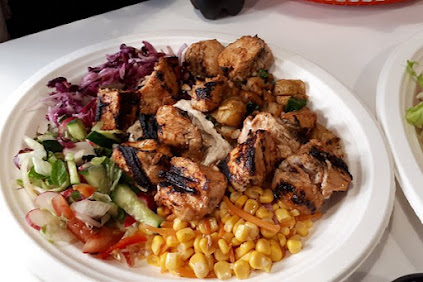In recent years, St. Julians, Malta, has witnessed a notable surge in the availability and popularity of halal food options. This trend reflects the evolving culinary landscape in the region, driven by a combination of factors including the increasing Muslim population, growing demand from Muslim travelers, and a broader shift towards inclusivity and diversity in the food industry. In this article, we delve into the emerging trend of halal food in St. Julians and its implications for residents, tourists, and the local culinary scene.
Growing Muslim Population and Diversity:
St. Julians, like many other cities worldwide, has experienced a steady increase in its Muslim population due to factors such as immigration, international student enrollment, and tourism. As a result, there is a growing demand for halal-certified food products and halal-friendly dining options to accommodate the dietary preferences and religious requirements of Muslim residents. The presence of a diverse Muslim community in St. Julians has fueled the demand for authentic halal cuisine, ranging from traditional dishes to modern interpretations of global favorites.
Catering to Muslim Tourists:
Malta's tourism industry has been thriving in recent years, attracting millions of visitors from around the world. With an increasing number of Muslim travelers choosing Malta as their holiday destination, there is a rising demand for halal food options in St. Julians. Halal-friendly hotels, restaurants, and food establishments have recognized this demand and are actively catering to Muslim tourists by offering halal-certified menus, prayer facilities, and culturally appropriate dining experiences. This trend has not only enhanced the tourism appeal of St. Julians but also contributed to its reputation as a welcoming and inclusive destination.
Ethical and Healthy Eating Choices:
Beyond catering to religious dietary requirements, halal food is also gaining popularity among non-Muslims in St. Julians who are seeking healthier, ethically sourced, and environmentally sustainable food options. Halal food is known for its strict adherence to cleanliness, hygiene, and ethical standards throughout the entire food production process. As a result, halal-certified food products and restaurants are perceived as offering higher quality and safer food choices, appealing to health-conscious consumers concerned about food safety, animal welfare, and environmental sustainability.
Culinary Fusion and Innovation:
The emergence of halal food in St. Julians has led to a culinary renaissance, with chefs and restaurateurs embracing multicultural influences and culinary fusion to create innovative halal dishes. From Mediterranean-inspired seafood grills to Middle Eastern-inspired kebabs and Asian-inspired noodle bowls, halal food establishments in St. Julians are showcasing a diverse array of flavors and cuisines from around the world. This culinary diversity not only enriches the dining experiences of residents and visitors but also promotes cultural exchange and appreciation in the community.
Economic Opportunities and Growth:
The rising trend of halal food in St. Julians presents significant economic opportunities for local businesses, entrepreneurs, and the hospitality sector. Halal food establishments, including restaurants, cafes, bakeries, and supermarkets, contribute to job creation, revenue generation, and economic growth in the region. Moreover, the popularity of halal food in St. Julians has the potential to attract more Muslim tourists and investors, further stimulating economic activity and development in the city.
Conclusion:
The emerging trend of halal food in St. Julians, Malta, reflects a convergence of factors including demographic changes, shifting consumer preferences, and culinary innovation. Halal food establishments in St. Julians are meeting the diverse dietary needs and cultural preferences of residents and visitors while also contributing to economic growth, tourism development, and cultural diversity in the region. As the demand for halal food continues to rise, St. Julians is poised to become a hub for halal dining experiences in the Mediterranean, catering to the tastes and preferences of a global audience.

Comments
Post a Comment